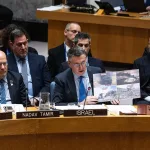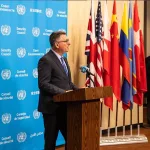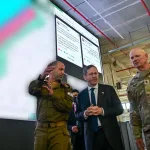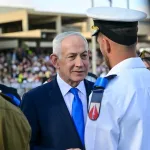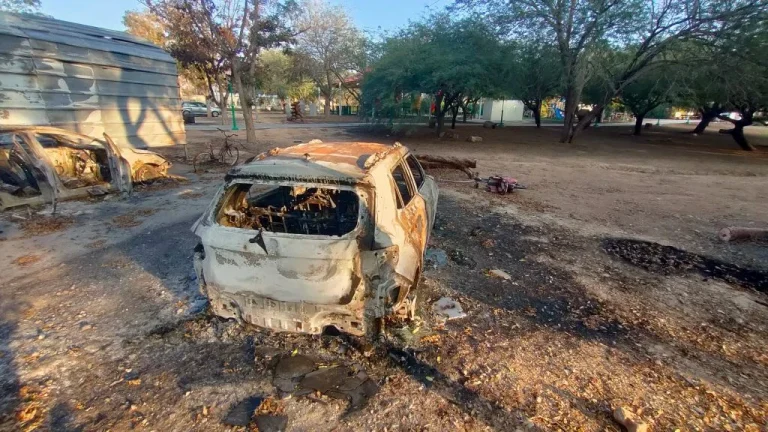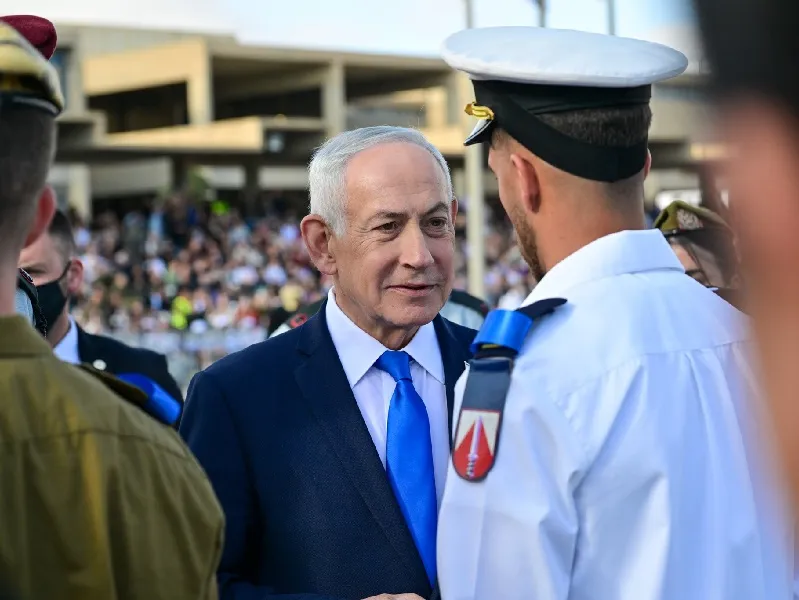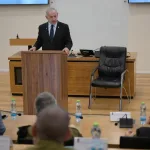Jerusalem, 30 September, 2025 (TPS-IL) — Residents of Kibbutz Gevim, near Sderot, were left almost entirely on their own during Hamas’s October 7, 2023, assault, with their local defense squad preventing a massacre by holding off terrorists for hours until reinforcements arrived, an Israeli military probe released Tuesday concluded.
The Israel Defense Forces’ inquiry, led by Lt. Col. (res.) Israel Shitrit, detailed how eight Hamas gunmen reached the kibbutz just after dawn, attempting to storm the community of 700 people. While four residents were wounded, the attackers never breached the perimeter and eventually diverted to other targets. Investigators credited the “resourcefulness and bravery” of Gevim’s civilian defenders with saving countless lives.
“The kibbutz was not penetrated, but this was thanks only to the courage of its people,” the report said.
According to the timeline, at 6:29 a.m. rocket sirens sounded across the western Negev. By 6:58, Hamas terrorists moving from the direction of Kfar Aza reached industrial sites near Gevim. The kibbutz’s security coordinator summoned his deputy and the local standby squad, but at that moment only five rifles were available, with most weapons locked in the armory.
At 7:21, a pickup truck carrying eight Palestinian gunmen drove past the Sha’ar HaNegev junction and reached Gevim’s main gate four minutes later. Gevim’s coordinator confronted the terrorists alone, was shot and wounded, and a senior Home Front Command officer rushing from his home was also injured. Another resident was struck soon after, and a grenade was hurled toward the gate before the attackers retreated.
By 7:28, the terrorists abandoned their attempt to storm Gevim, turning instead toward nearby Moshav Yakhini. There they killed civilians fleeing the Nova music festival and fatally ambushed Maglan commando Sgt. Amit Guetta before Israeli security forces eliminated them by mid-morning.
Inside Gevim, the defense squad rapidly organized. Eleven armed members took up positions by 7:40 a.m., while others collected weapons from the armory. Under the guidance of retired brigadier general and kibbutz resident Gilad Schwartzman, they patrolled homes, assisted the wounded, and kept constant guard.
Military reinforcements arrived only at 10:30 a.m., when Lt. Col. Tomer Grinberg and soldiers from the Golani Brigade entered the kibbutz. Residents supplied them with ammunition and helped direct them through the community. At noon, standby fighters evacuated 12 civilians who had been trapped at a nearby gas station since early morning, in what the probe described as an act reflecting “values of mutual responsibility and solidarity.”
Yet full IDF control of the area came only the following afternoon, nearly 34 hours after the initial attack. Most residents had evacuated on their own, while the remainder were escorted out by troops. Searches later discovered two foreign workers in the vicinity, one killed and the other wounded, apparently struck by terrorist gunfire.
Two Gevim residents were murdered that day outside the community: 29-year-old Ziv Hagbi, gunned down while escaping the Nova festival, and 50-year-old Shlomi Davidovich, killed while sheltering in a roadside bomb shelter.
The investigation acknowledged the army’s failure to protect the kibbutz during the crucial first hours, noting that Gevim had not been classified as a frontline community despite its location less than four kilometers from Gaza. As a result, it lacked advanced defenses such as cameras and electronic fences.
The report is the latest in a series of detailed army probes into how some 5,000 terrorists from Hamas and Palestinian Islamic Jihad managed to attack numerous Israeli communities and overrun army positions. The army’s chain of command broke amid the chaos while soldiers were outnumbered.
The investigations found that the army misunderstood Hamas’s intentions, and as October 7 approached, intelligence about the looming attack was misinterpreted. The military was also more focused on threats from Iran and its proxy Hezbollah in Lebanon.
The IDF probes only address issues of operations, intelligence, and command, not decisions made by the political echelon.
prime minister Benjamin Netanyahu has resisted calls for a formal state commission of inquiry, saying he opposes a “politically biased” probe. Critics accuse Netanyahu of delaying the inquiry and trying to water down its mandate.
Approximately 1,200 people were killed, and 252 Israelis and foreigners were taken hostage in Hamas’s attacks on Israeli communities near the Gaza border on October 7. Of the 48 remaining hostages, about 20 are believed to be alive.








